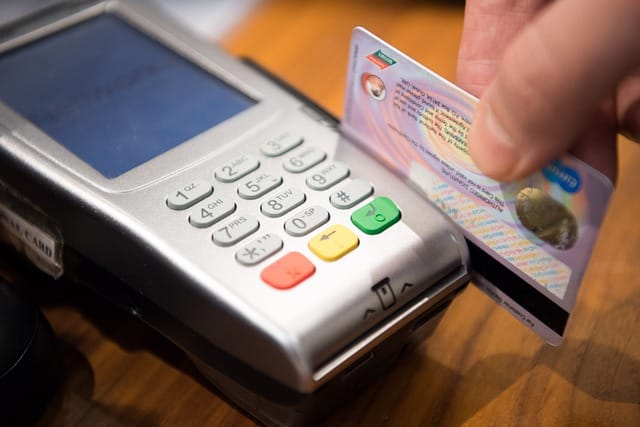Great Tips To Help You Work Through Personal Bankruptcy

Bankruptcy is both a stressor and it can also bring relief. The positive is that once the process has been completed, and you can begin to rebuild your credit.Here are some great tips anyone can use to help make the process of bankruptcy go smooth.
Don’t avoid telling your attorney of certain details with your case. Don’t assume that the attorney will remember something important later without having a reminder. This is your future in their hands, so never be nervous about speaking your mind.
The person you file for bankruptcy has to have a complete and accurate picture of your financial condition.
Getting unsecured credit post-bankruptcy will likely be difficult. If this happens to you, think about applying for a couple of secured credit cards. This will demonstrate that you’re seriously trying to restore your credit. After a while, you may be able to get unsecured credit again.
Don’t pay for the consultation and ask a lot of questions. Most attorneys offer free consultations, so talk to a few before making your decision. Only make a lawyer if you have met with several attorneys and all of your questions were answered. You do right away. This allows you the opportunity to speak with other attorneys.
Be sure to hire an attorney before you embark upon filing for bankruptcy. You might not know everything you need to know in order to have a successful outcome of your case. A personal bankruptcy attorney can make sure you are following the correct procedures in your filing.
Before making the decision to file for bankruptcy, be sure that other solutions aren’t more appropriate for your case. If your debts are really not overwhelming, you can join a counseling program or straighten your finances out by yourself. You might also be able to negotiate lower payments yourself, but be certain to get any arrangements with creditors in writing.
If you know people who have filed for bankruptcy, ask them who they would recommend rather than relying on Internet reviews or worse, just randomly picking someone out of the phone book. You want your bankruptcy to go smoothly, and the Internet is rife with fly-by-night companies whose only goal is to prey upon the financially desperate.
Filing bankruptcy does not always mean you will end up losing your house. It may be possible to keep your home if the value has depreciated, as all this stuff comes into play when determining if you can keep the home. You may also want to check into homestead exemption because it may allow you to keep your home.
Understand the differences between a Chapter 7 and Chapter 13 bankruptcy. Take the time to learn about them extensively, and look at the advantages and disadvantages of each.If there is anything that you don’t understand, go over it with your lawyer prior to choosing which one to file.
The process of filing for bankruptcy is hard. Lots of people think they should hide from everyone else until this is all over. This is not a good idea because staying alone could cause you to feel depressed. So, it is critical that you spend what quality hours you can with loved ones, regardless of the current financial situation.
Know the differences between Chapter 7 and Chapter 13 bankruptcy. If you file for Chapter 7 bankruptcy, all of your debts will be eliminated. This type of bankruptcy ends any relationship you might have with creditors. If however you enter Chapter 13, you will go into a five year repayment program prior to your debts dissolving entirely. It is worth while to take your time to research both types of bankruptcy to decide which option works best for you, and your financial situation.
This kind of stress can take a heavy toll on your personal life, if you fail to adequately address the problem. Life will surely get better; you just need to make it through the bankruptcy process.
It is possible to get an auto loan or mortgage during the repayment period for Chapter 13 case remains active.You will have to see your trustee and be approved for this new loan. You will need to show them why and prove that you can handle paying back the new loan payments. You also need to buy the item.
Know your rights that you have as you file for bankruptcy.Some debtors will tell you your debt with them can not be bankrupted.There are a few debts that cannot be cleared, such as student loans and child support, that can’t be bankrupted. If any debt collectors tell you that their debts can’t be bankrupted, check the bankruptcy laws in your state or consult an attorney.
Consider if Chapter 13 bankruptcy is an option. If you have a regular source of income and less than $250,000 in unsecured debt, you can file for Chapter 13 bankruptcy. Chapter 13 bankruptcy permits you to remain the owner of your properties, while allowing you to repay your debt using a debt consolidation loan. The length of the plan is generally up to five years, and when this is over, you will be free of unsecured debt. Keep in mind that even missing one payment can be enough for your whole case to get dismissed.
Do not wait until things go from bad to worse before filing for bankruptcy.It is a big mistake to avoid financial problems, hoping they will go away on their own. It is easy you to lose control of your debt, which could lead to loss of assets or wages. As soon as you realize your debts far outweigh your income, seek the advice of a good bankruptcy attorney.
Consider your options before deciding to file for personal bankruptcy. You may want to look into the possibility of credit counseling instead. There are even non-profit organizations that you can use. They can work with the creditors to lower payments and interest rates. You can even pay your creditors.
Don’t put off filing for bankruptcy until you must do. It can be difficult to ask for help, but if you wait forever to act, you accrue more debt.
If your paycheck is larger than your debts, avoid filing for bankruptcy. Remember that the record of your personal bankruptcy filing will be discernible on the report of your credit for as many as 10 years. For this reason, bankruptcy filing should not be taken lightly.
Make a prompt decision to be more responsible fiscally before filing. Avoid running up current debts or taking on new debt right before you file for bankruptcy. Judges as well as creditors will consider you current and bankruptcy trustees take your repayment history into account when they’re adjudicating personal bankruptcy. You should show the court that your current spending behavior is being worked on by how you spend now.
You do not have to lose everything you file for bankruptcy. You may be able to keep your personal property. Some included items are: electronics, household furnishings, jewelry and electronics. This will all depend on the type of bankruptcy you choose, the type of bankruptcy you file for, and your financial situation, but you could hold onto your large assets like the car and the family home.
You will want to retain a bankruptcy lawyer if you decide to file for bankruptcy. A qualified attorney could give you of the process simpler. Your lawyer also knows how to properly file the paperwork and help you have.
Before you decide to file for Chapter 7 bankruptcy, consider how it could affect other people on your credit accounts, such as family members or business partners. Debts that involved a co-signer can be discharged in Chapter 7 bankruptcy. However, your creditors will be able demand that your co-debtor pays the debt off in full.
Bankruptcy is both a good and a bad thing; it depends on perspective. No matter why you are filing, you must remember that knowledge is the key to help during the process. Apply the tips from this article to help make your bankruptcy an easier process. Apply all of the knowledge you have gained from this article and you will be on your way to feeling more at ease about your bankruptcy.


